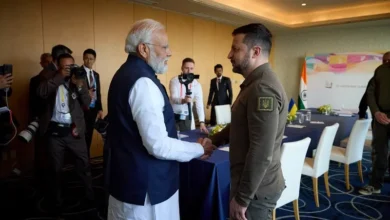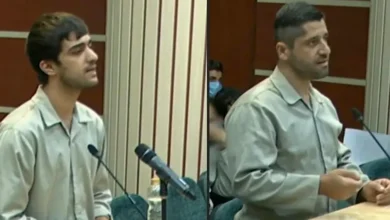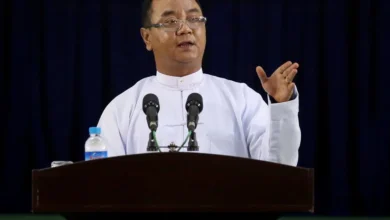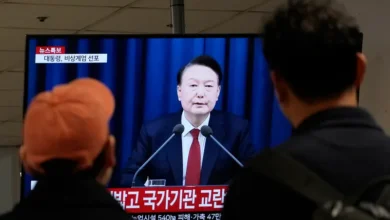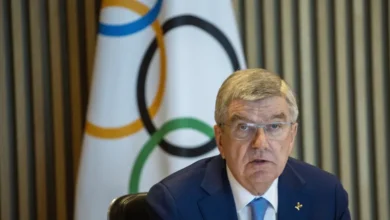What are the terms under which Turkey’s Erdogan agreed to back Sweden’s NATO bid?
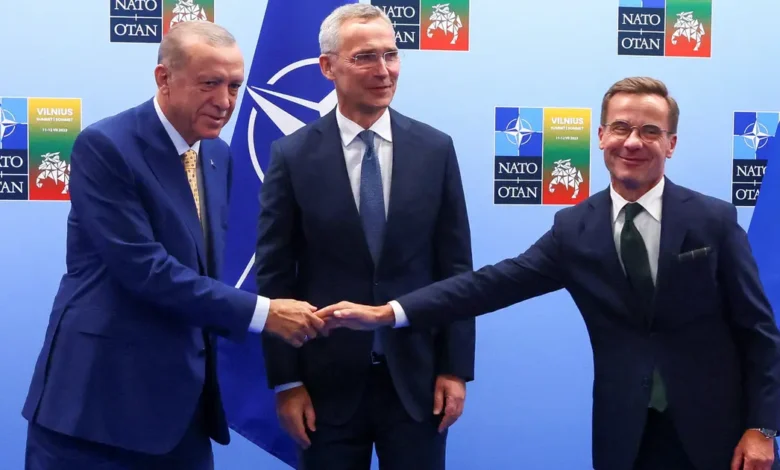
NATO Secretary General Jens Stoltenberg announced on Monday that Turkey’s President Recep Tayyip Erdogan has agreed to “ensure the ratification” of Sweden’s bid to join NATO.
Turkey had for long refused to ratify Sweden’s NATO accession over objections of alleging that Stockholm supported Kurdish militants, namely the PKK, which Ankara deems a terrorist organization, and failing to extradite dozens of suspected “terrorists,” specifically the followers of Fethullah Gulen, whom Ankara accuses of orchestrating a 2016 coup attempt.
Ankara’s objections persisted despite a summit in Madrid last year whereby Sweden and Finland sought to address Turkish security concerns, and at its conclusion memorandums of understandings were signed. Yet, while Erdogan approved Finland’s bid, he continued to refuse to back Sweden’s membership bid citing terrorism and security concerns.
However, Erdogan has now approved Sweden’s bid according to a joint statement by him, Prime Minister Kristersson, and Stoltenberg.
What does the agreement entail?
Sweden has amended its constitution, changed its laws, significantly expanded its counter- terrorism cooperation against the PKK, and resumed arms exports to Turkey.
Sweden will present a roadmap as the basis of its continued fight against terrorism in all its forms and manifestations towards the full implementation of all elements of the Trilateral Memorandum.
Sweden reiterates that it will not provide support to YPG/PYD. Turkey views the Kurdish Democratic Union Party (PYD) and its armed wing, the People’s Protection Units (YPG), as an extension of the Kurdistan Workers’ Party (PKK) and categorizes them as terrorist organizations. Ankara argues that the PYD/YPG shares ideological, operational, and organizational links with the PKK, which has been engaged in a decades-long armed insurgency against the Turkish state. Turkey contends that the PYD/YPG’s goal of establishing an autonomous Kurdish region in Syria threatens its national security and territorial integrity.
Sweden also reiterates that it will not provide support to the organisation described as FETO in Turkey. The Fethullahist Terrorist Organization (FETO) is an entity that Turkey’s government perceives as a clandestine network led by Fethullah Gulen, a Turkish preacher and former ally of President Recep Tayyip Erdogan. FETO is accused of orchestrating the failed coup attempt in Turkey in July 2016. Erdogan and his administration maintain that FETO infiltrated various state institutions, including the judiciary, police, military, and education sector, with the aim of overthrowing the government. The Turkish government considers FETO a terrorist organization due to its alleged involvement in illegal activities, including the coup attempt, and its purported efforts to undermine the state’s stability and institutions. Erdogan and his government have outlawed FETO and launched a widespread crackdown on its members, leading to mass arrests, dismissals, and closures of institutions linked to the organization.
Both Sweden and Turkey agreed that counter-terrorism cooperation is a long-term effort, which will continue beyond Sweden’s accession to NATO. Secretary General Stoltenberg also reconfirmed that NATO categorically condemns terrorism in all its forms and manifestations. NATO will be significantly stepping up its work in this area, including by the Secretary General establishing, for the first time at NATO, the post of Special Coordinator for Counter-Terrorism.
The three leaders committed to the principle that there should be no restrictions, barriers or sanctions to defense trade and investment among Allies. And that they will work towards eliminating such obstacles. In 2019, Sweden had announced a ban on weapons exports to Turkey following the Turkish military offensive in northern Syria. The decision came in response to international concerns regarding the impact of the offensive on Kurdish forces and the civilian population in the region. The Swedish government, in alignment with its strict arms export control policies, expressed apprehensions about the potential misuse of Swedish weapons in the conflict. The ban was implemented as a precautionary measure to prevent the exacerbation of violence and instability in the area. By imposing this ban, Sweden aimed to send a clear message of disapproval and to ensure that its arms exports align with its commitment to human rights, peace, and stability.
Sweden will actively support efforts to reinvigorate Turkey’s EU accession process, including modernization of the EU-Turkey Customs Union and visa liberalization. Turkey has been actively pursuing the ambition of becoming a member of the European Union (EU) for a significant duration. The country’s interest in joining the EU dates back to the 1960s when it initially applied for associate membership. Since then, Turkey has made substantial endeavors to align its political, economic, and social systems with the standards and regulations of the EU. These endeavors have involved implementing diverse reforms, such as modernizing its legal framework, enhancing human rights safeguards, and strengthening democratic institutions.
